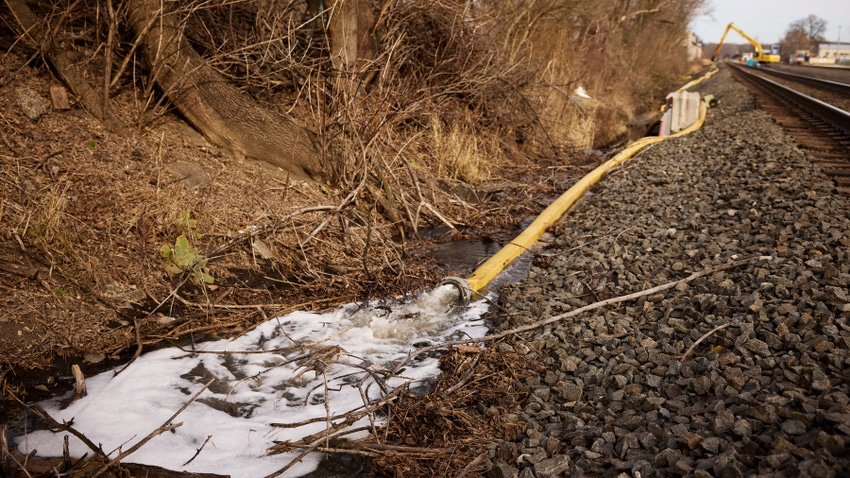
While the massive Feb. 3 train derailment and the ensuing chemical spill in the northeast Ohio town of East Palestine has been attributed to about 3,500 fish deaths, no deaths from nonaquatic species in either Ohio or Pennsylvania have been reported, said Mary Mertz, director of the Ohio Department of Natural Resources.
Mertz and several other officials from the Environmental Protection Agency, Ohio Department of Agriculture (including state veterinarian Dr. Dennis Summers), the Ohio Health Department and Ohio Emergency Management Agency hosted a town hall meeting Feb. 15 to address and answer as many questions as possible.
In an interview with Farm Progress on Feb. 16, Haley Shoemaker, OSU Extension educator for Columbiana County, said reports from ODA and veterinarians who have been in close contact with all the farms in the surrounding area do not substantiate media claims of livestock dying off.
“We're not entirely sure where those claims stemmed from,” she said. “We haven't had any verified claims of livestock dying or any huge impacts on agriculture at this time. However, if anyone notices livestock showing symptoms, or they're just acting strange or out of their norm, the first step should always be to call your vet.”
Should that vet think it's appropriate, ODA will be contacted, she added.
About 10 of the 50 derailed cars were carrying liquid vinyl chloride and butyl acrylate, according to officials.
On Feb. 5, residents of the small town were urged by authorities to evacuate over the risk of an explosion. The following day, crews conducted a “controlled release” and burning of the chemicals, causing a large plume of black smoke.
Since the evacuation order was lifted on Feb. 15, officials have stated the air is safe to breath and the water is safe to drink.
Protecting animals
Ohio has about 75,000 farms. In the evacuation area, Shoemaker says there are no large animal operations, rather smaller farms with animals such as horses, dairy goats, feeder calves and backyard poultry.
There is a dairy, milking about 400 head and about 900 cows total (including heifers and dry cows), outside of the evacuation zone, about 3 miles from the wreck.
Shoemaker said she’s been in regular contact with the operators. “Thankfully, they're uphill and haven’t seen any negative effects in the cows,” she says. “They haven't noticed any differences in milk production. They don't have a lingering smell anywhere on the farm and haven’t really noticed the cows reacting to it at all.”
However, out of precaution right after the accident, cows were moved to a more confined area of the barn.
In the evacuation zone, Shoemaker said, many farmers — getting help from family and friends — trailered their animals to other locations. As an option, the fairgrounds were opened for the evacuation, she added.
In a statement from ODA, the department says it is ready to assist, if needed, and underlined that farmers should work with their veterinarian if unusual behavior is noticed. It also advised that if landowners are approached by someone about “cleaning up” your farm after the train derailment, be sure to document everything before testing or possible cleanup.
Be cautious if a company offers to clean up your property that they have documented evidence from the local EMA of the need, or there is a chance you may be liable for the cleanup cost if no contamination is proven.
Shoemaker had high praise for the first responders. “As a county, we can’t thank them enough for all the work they've put in during the last couple of weeks,” she said. “Nobody can really predict or be fully prepared for this situation. Whether it's boots on the ground, agencies on the ground, our first responders, our town officials … they're all doing the best they can and working as hard as they can to get people answers and the help they need.”
Contact information
Norfolk Southern Family Assistance Center:
800-230-7049
Important contact numbers at EPA :
Home air screening: 330-849-3913
Ohio EPA: 614-644-2160
Air quality and water testing: 330-849-3919
Toxicologist: 234-542-6474
General Information:
Ohio Emergency Management Agency, Columbiana County: 330-424-9725
Ohio Department of Agriculture state veterinarian for livestock health concerns: 614-728-6201
About the Author(s)
You May Also Like






